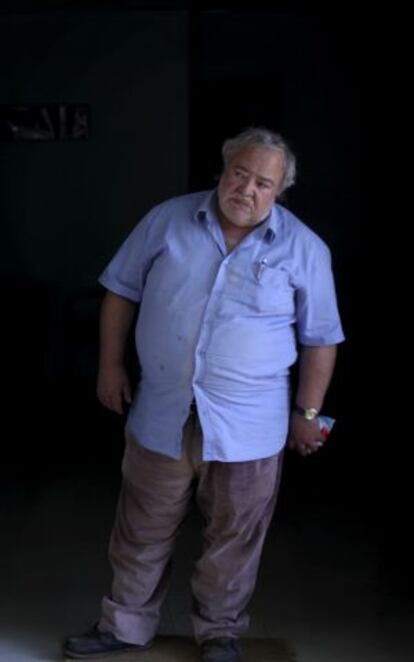Senior holds up bank to get prison bed in crisis-hit Lisbon
More Portuguese inmates remaining in jail due to harsh economic conditions on the outside


Some Portuguese prisoners are actually renouncing their right to parole, preferring jail over the streets, claims José Mouraz Lopes, a magistrate and president of the Union Association of Portuguese Judges. "In July I talked with two colleagues in charge of awarding parole at two Portuguese prisons and they confirmed it. I suppose there must be more. In my experience as a judge and a jurist, this had never happened in Portugal before."
The General Directorate of Penitentiary Services "does not know" how many prisoners are rejecting their freedom, but José Brites, president of the non-profit group O Companheiro, which helps ex-convicts return to society, has already worked with several middle-aged men who would rather come to the association by day and return to jail by night, rather than stay out of prison altogether: "Because of the recession they have no place to go."
Still, none of these cases can match that of Carlos Garcia da Mata, the senior who held up a bank, he says, in order to ensure a roof over his head.
One afternoon, sitting inside a boarding house in Lisbon and about to be kicked out after failing to pay the rent, this unemployed man with health problems who lives on a monthly pension of 240 euros decided that rather than sleep on the streets, he would prefer a prison cell. So he picked up a stone, walked over to a nearby store, took aim and smashed the display window. Then, as the alarms went off, he sat down to wait for the police.
As he expected, he ended up down at the station. But the judge decided that his offense was not jail worthy, and he was freed two days later. "I'll just do something bigger," he warned.
The crisis is removing means to care for inmates who could otherwise be released"
And so the very next day he went over to the local bank. "I don't like weapons, so I walked in without a gun or anything, and went over to the teller," he explained this week with a half-smile, speaking inside the headquarters of O Companheiro. He handed the employee a piece of paper that read: "I am desperate. I am armed. Give me 5,000 euros in 50-euro notes." The woman gave him 3,000 euros and Da Mata walked out; lacking an escape plan, he hailed a cab. A few minutes later, the taxi driver got a call from the police - who apparently knew the bank robber was harmless - telling him to please return to the bank.
"I didn't mind getting caught. All I wanted was a roof over my head. But I didn't have time to spend a single euro, not even to buy a cigarette!"
But the judge again ruled that Da Mata's caper did not deserve jail, and instead he sent him to O Companheiro to do community work. And that is where he lives. Now he sells a magazine on the streets, the proceeds from which go to the homeless. He makes enough to buy cigarettes, and at night he sleeps with an oxygen mask that prevents him suffocating.
There are around 14,000 people behind bars in Portugal. In the last two years, during the worst of the crisis, this figure has grown by around 2,000. Are there more crimes? No. Surprisingly, notes judge Mouraz Lopes, the crime rate has actually dropped. He believes the growing inmate population is due to other reasons.
"It's not that prisoners would rather stay in jail," he says. "Those are symbolic cases, but few and far between. It's the judges in charge of granting parole who see that the requirements are not being met [possibility of reintegration into society, relatives who can support the inmate...]. The crisis is removing means to care for inmates who could otherwise be released."
Tu suscripción se está usando en otro dispositivo
¿Quieres añadir otro usuario a tu suscripción?
Si continúas leyendo en este dispositivo, no se podrá leer en el otro.
FlechaTu suscripción se está usando en otro dispositivo y solo puedes acceder a EL PAÍS desde un dispositivo a la vez.
Si quieres compartir tu cuenta, cambia tu suscripción a la modalidad Premium, así podrás añadir otro usuario. Cada uno accederá con su propia cuenta de email, lo que os permitirá personalizar vuestra experiencia en EL PAÍS.
¿Tienes una suscripción de empresa? Accede aquí para contratar más cuentas.
En el caso de no saber quién está usando tu cuenta, te recomendamos cambiar tu contraseña aquí.
Si decides continuar compartiendo tu cuenta, este mensaje se mostrará en tu dispositivo y en el de la otra persona que está usando tu cuenta de forma indefinida, afectando a tu experiencia de lectura. Puedes consultar aquí los términos y condiciones de la suscripción digital.








































